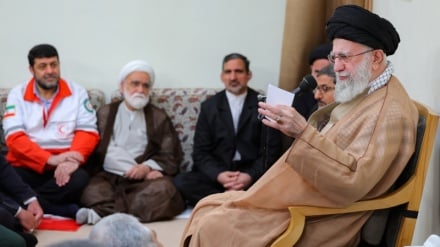UN sounds alarm over health condition of imprisoned Palestinian hunger strikers
The United Nations (UN) has raised the alarm over the health conditions of hunger-striking Palestinian inmates in Israeli regime prisons.
“I am especially alarmed by reports of punitive measures by the Israeli authorities against the hunger strikers, including restricted access to lawyers and the denial of family visits,” said UN High Commissioner for Human Rights Zeid Ra’ad al-Hussein in a statement on Wednesday.
Since April 17, more than 1,600 Palestinian prisoners have been refusing to eat food as part of a protest action dubbed the Freedom and Dignity Strike, led by imprisoned Marwan Barghouti, a former top leader of the Palestinian Fatah Movement.
The Israeli regime has sentenced Barghouti, a popular figure among Palestinians, to serve five life terms in prison over his role in the Palestinian Intifada (uprising), and the Israel Prison Service (IPS) has placed him in solitary confinement since the initiation of the strike.
The IPS has been punishing the hunger-striking prisoners by placing them in solitary confinement and denying them legal visits by their families and lawyers since the strike began on April 17, which also was the Palestinian Prisoners’ Day.
Zeid, the UN human rights chief, added that, according to international human rights law, the right to consult an attorney was a “fundamental protection” and should “never” be violated.
He also said the health conditions of the hundreds of hunger strikers had “deteriorated significantly.”
Zeid’s comments came as lawyers with the Palestinian Prisoners’ Society announced that at least 60 imprisoned hunger strikers in Ohalei Kedar prison had been moved to infirmaries, set up in the prison, for observation. Many of the hospitalized inmates were in serious condition, the lawyers added.
SS



